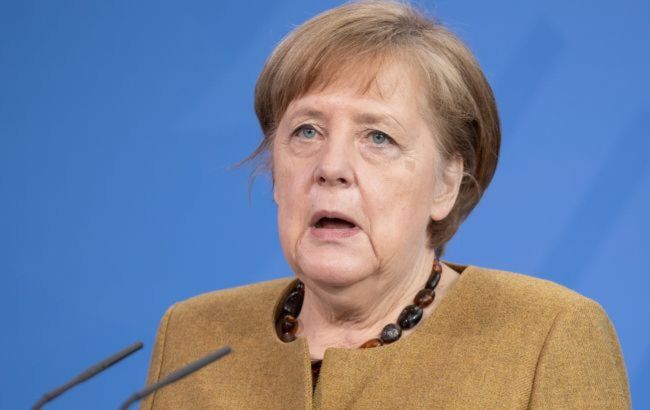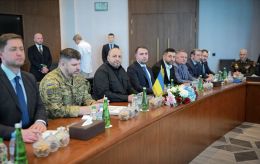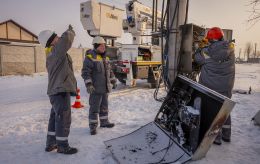Angela Merkel explains why Europe failed to stop war in Ukraine
 Angela Merkel explains why Europe failed to stop the war in Ukraine (Getty Images)
Angela Merkel explains why Europe failed to stop the war in Ukraine (Getty Images)
Europe is once again revisiting the question of whether its internal divisions may have contributed to the outbreak of the war in Ukraine. Former German Chancellor Angela Merkel recalled the failed attempts to persuade the Kremlin to compromise back in 2021, and admitted that a united EU voice never truly emerged, according to The Telegraph.
Failed attempts to reach agreement with Kremlin
Former German Chancellor Angela Merkel revealed that in the summer of 2021, she and French President Emmanuel Macron tried to establish a new negotiation format with the Kremlin on behalf of the entire European Union. According to her, the idea was for Europe to speak to Russia with a single voice, but the initiative ultimately failed.
The Baltic states and Poland opposed the move, fearing that such talks would only strengthen Moscow’s position. As a result, each European country acted individually, and the Russian leader received a signal of weakness and disunity within the EU.
Merkel acknowledged that Europe never managed to form a coherent strategy toward Russia, and that "divisions among allies only made the situation worse." She added that the consequences of this failure are still being felt today.
Why divisions in EU persist
Today, debates over those events have resurfaced, as Europe continues to struggle with unity. Following the change of power in the United States, the new administration of Donald Trump has withdrawn funding for Ukraine’s military needs, shifting the burden onto the European Union, which itself remains divided over key issues.
According to media reports, Merkel’s successor, Friedrich Merz, has not joined the initiative proposed by French President Emmanuel Macron and UK Prime Minister Keir Starmer, who have suggested deploying European peacekeeping forces to Ukraine.
The Baltic states remain staunchly anti-Russian, while Poland’s new president, Karol Nawrocki, opposes Ukraine’s accession to the EU and NATO and has revoked benefits for Ukrainian refugees.
Meanwhile, Hungary and Slovakia continue purchasing Russian energy and blocking military aid packages for Kyiv, and in Czechia, a parliamentary majority has formed from parties skeptical of continued support for Ukraine.
Earlier, RBC-Ukraine reported that despite the lack of progress following US–Russia talks, Ukraine’s strategy of attrition warfare has begun to yield results: steady Russian losses and the Ukrainian Armed Forces’ adaptability are creating the foundation for sustained advantage and the prospect of a long-term victory.
At the same time, Moscow is deepening its reliance on foreign mercenaries, particularly Cuban fighters, whose growing involvement is reshaping the dynamics of the war and raising new international security concerns.

